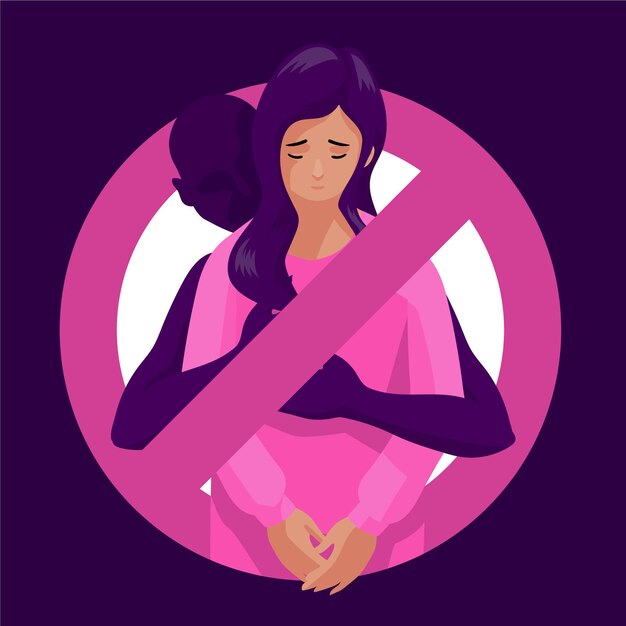By Hope Leontina
Uganda: Gender Equality activists in Uganda have called for immediate action over the surge in sexual offenses against juveniles in the recently released 2023 police annual crime report.
The sex-related crimes, particularly defilement, remain a significant challenge for the police in Uganda, as revealed in the recently released 2023 annual police crime report.
The report indicates that 13,144 Juveniles were defiled in 2023, with 383 of them defiled by individuals living with HIV/AIDS. Of the total victims, 12,818 were females, 326 were males, and distressingly, 97 were defiled by parents, 90 by guardians, and 211 by teachers. Moreover, 131 defilement victims had disabilities.
The 15-17 age group was notably vulnerable, often targeted during domestic chores, especially in rural areas, while engaging in activities like collecting water and firewood.
In 2023, a total of 12,771 defilement cases were reported to the police, representing a 1.5 percent increase from the previous year. Among these, 8,925 were defilement cases, and 3,846 were aggravated defilement cases. From the reported cases, 5,564 were taken to court, 2,402 were not proceeded with, and 4,805 are still under inquiry.
Ms Elizabeth Ampairwe, Director of Programmes at the Forum for Women in Democracy (FOWODE), said the persistence of Sexual and Gender-Based Violence (SGBV) is due to a culture of silence and community acceptance, coupled with weak implementation of existing laws.
“We have not done adequate community sensitization, and there’s limited investment in ensuring access to justice for survivors of violence,” she said.
Ms Ampairwe acknowledged Uganda’s impressive array of laws but stressed that the major challenge lies in implementation, which, she emphasized, is hindered by insufficient resources.
To combat SGBV effectively, she advocated for increased community awareness and resource allocation, emphasizing the need for a comprehensive approach that not only establishes laws but also ensures their practical enforcement to protect survivors of gender-based violence.
Ms Jenifer Kahumuza, coordinator of Joy for Children in the Rwenzori sub-region region, finds it absurd that defilement continues to plague the sub-region, with perpetrators often being individuals within the community.
She noted that young girls are frequently defiled by school teachers, neighbors, and in some horrifying cases, their uncles, fathers, and older brothers.
“To combat this ugly monster, we need a multisectoral approach involving all stakeholders, from parents to children. There’s a parenting gap that must be addressed through programs like Parenting for Respectability, tackling issues such as poor parental bonding, harsh parenting, gender-specific socialization, and parental conflicts, all contributing to SGBV,” she emphasized.
Ms Kahumuza said the government, NGOs, and institutions like schools need to continue sensitizing communities on children’s rights and responsibilities.
She advocated for empowering girls with life skills to help them make informed decisions, build self-confidence, and foster positive attitudes while police need more training to swiftly recognize defilement cases, ensuring timely examination, reports, and evidence, with a commitment to handling reported cases conclusively.

Ms Betty Mujungu, the team leader of the Gender Desk at Voice of Toro, expressed deep concern over the escalating cases of Sexual and Gender-Based Violence (SGBV), despite repeated calls for reform. She emphasized the inadequate progress in systematically and effectively addressing this type of violence.
“I think, at this point, there is a critical need to strengthen our justice systems. While there has been a significant increase in awareness about reporting mechanisms for sexual abuse, we are now witnessing more cases being reported. However, the crucial next step is to ensure that these reported cases make it to court and that perpetrators face consequences,” she stated.
Ms Mujungu highlighted that the public’s confidence in the justice system relies on seeing tangible results, with offenders being held accountable. she lamented that after arrests, offenders are often released without facing appropriate consequences.
“There are numerous deep-rooted perceptions and stereotypes attached to girls and women in this region that are not valid, yet they persist and contribute to the abuse faced by them. For instance, there is a misguided belief that women here are extraordinarily sexually active and that the culture dictates that girls are sexually ready at the age of 12, which is untrue. We must debunk these harmful perceptions,” she asserted.
Mr Crescent Muhabwa, a Youth positive Masculinity champion, and student at Uganda Pentecostal University Fortportal, said that boys and men should join this fight against all forms of injustice and abuse against women and girls because male dominance is a social construction rather than nature.
“As men, we must awaken our ability to empathize and change our behaviors of thinking that you dominate to the extent that we are raping and defiling without thinking about the consequences of the actions to the girls and women, this is surely unfair,”
He said these actions shatter girls’ confidence and rob them of their potential to live life to full potential.
Cases taken to court
Within the cases taken to court, 940 secured convictions, 38 were acquitted, 414 were dismissed, and a staggering 4,172 are pending. The report further reveals that 5,671 defilement suspects were arrested and charged, with 982 convictions, 56 acquittals, 400 discharges, and 4,233 awaiting trial.
The report highlights a concerning increase in aggravated defilement cases, with 3,846 cases reported to the police in 2023 compared to 3,620 cases in 2022, indicating a 6.2 percent rise. Additionally, a total of 14,846 sex-related crimes were reported nationwide in 2023, reflecting a 1.4 percent increase from the 14,693 cases reported in 2022.
Among the reported sex-related crimes, rape cases totaled 1,577 in 2023, showing a 2.8 percent decrease from the 1,623 cases reported in 2022. Of the rape cases, 625 were taken to court, resulting in 30 convictions, 4 acquittals, and 17 dismissals, while a substantial 574 cases remain pending. The victims included 1,395 female adults and 171 female juveniles. A total of 661 rape suspects were charged in court, with 31 convictions and 610 awaiting trial.
Regionally, North Kyoga recorded the highest number of defilement cases in 2023 with 825 cases, followed by East Kyoga (725 cases), Elgon (699 cases), Albertine (499 cases), Aswa (467 cases), and KMP North (419 cases). Conversely, regions with the lowest counts of aggravated defilement in 2023 included Kidepo (19 cases), Mt. Moroto (24 cases), Bukedi North (36 cases), Sipi (41 cases), and Busoga North (58 cases). The findings underscore the need for targeted interventions in regions with higher prevalence and a comprehensive approach to tackling sex-related crimes nationwide.
In 2023, Tororo District topped the list with the highest number of defilement cases (159 cases), followed closely by Kiryandongo District with 150 cases, Buyende with 149 cases, and Lira City East with 134 cases. Similarly, Katwe Police Division led in the number of reported rape cases in 2023 with 52 cases, followed by Yumbe with 34 cases, Kira Division with 29 cases, Tororo with 28 cases, and Mukono with 27 cases.
The report also highlighted 14,681 cases of domestic violence and 10,741 child-related offenses reported nationwide. Notably, in Rwenzori West Region, which ranked 8th out of 29 police regions in the country, districts like Kyegegwa, Kyenjojo, Kitagwenda, Kamwenge, Kabarole, Bunyangabu, Ntoroko, Bundibugyo, and Fort Portal City reflected an increase in defilement cases.
Within the realm of defilement, Rwenzori West Region reported 188 cases of aggravated defilement, totaling 309 defilement cases and 81 rape cases. Kamwenge district, in particular, accounted for 20 rape cases, securing the 15th position among districts in the country, showcasing a significant increase from the 13 cases reported in 2022.
In the realm of Child-related Offences, the region recorded 388 reported cases, with Kamwenge district contributing 92, marking a notable increase from 52 cases reported in 2022.
Turning to domestic violence, the region reported a total of 838 cases, with Kamwenge district accounting for 492 cases, reflecting a substantial rise from 266 cases in 2022. Additionally, there were 10 cases of domestic violence-related murder reported, with Kamwenge contributing 5 cases to this alarming statistic.
Rwenzori West Region also documented 197 cases of Child Neglect, 68 cases of child desertion, and 32 cases of child abuse and torture. Kyenjojo district witnessed a significant increase in child neglect cases, surging from 5 cases in 2022 to 19 cases.














